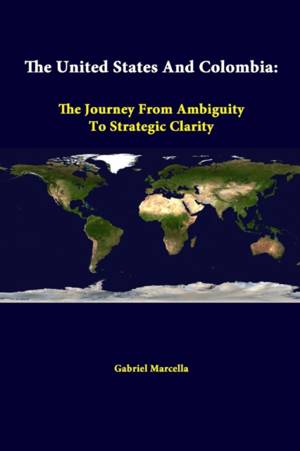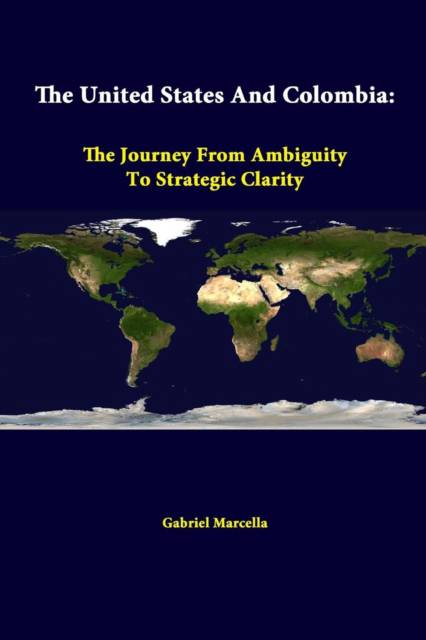
- Afhalen na 1 uur in een winkel met voorraad
- Gratis thuislevering in België vanaf € 30
- Ruim aanbod met 7 miljoen producten
- Afhalen na 1 uur in een winkel met voorraad
- Gratis thuislevering in België vanaf € 30
- Ruim aanbod met 7 miljoen producten
Zoeken
The United States And Colombia
The Journey From Ambiguity To Strategic Clarity
Gabriel Marcella, Strategic Studies Institute
Paperback | Engels
€ 22,45
+ 44 punten
Omschrijving
There has been a remarkable turnaround in the policy of the United States towards Colombia. It has gone from an exclusive focus on counternarcotics to a comprehensive recognition of that nation's deeply-rooted problems. The factors that drove this change are the tragic events of September 11, 2001, as well as the increased terrorism of the insurgents that threaten the state and society in Colombia. The evolution of American policy takes into account a recurring global geopolitical reality, of which Colombia is a paradigm: the problem of weak states and ungoverned space. Colombia's weak state is beset with a complex interaction of violence and corruption from the terrorist left and right, as well as the workings of international organized crime that prospers on the movement of illicit narcotics. At stake for the United States and the hemispheric community is the security of the immediate Andean and adjacent areas.
Specificaties
Betrokkenen
- Auteur(s):
- Uitgeverij:
Inhoud
- Aantal bladzijden:
- 88
- Taal:
- Engels
Eigenschappen
- Productcode (EAN):
- 9781312339712
- Verschijningsdatum:
- 8/07/2014
- Uitvoering:
- Paperback
- Formaat:
- Trade paperback (VS)
- Afmetingen:
- 152 mm x 229 mm
- Gewicht:
- 140 g

Alleen bij Standaard Boekhandel
+ 44 punten op je klantenkaart van Standaard Boekhandel
Beoordelingen
We publiceren alleen reviews die voldoen aan de voorwaarden voor reviews. Bekijk onze voorwaarden voor reviews.











